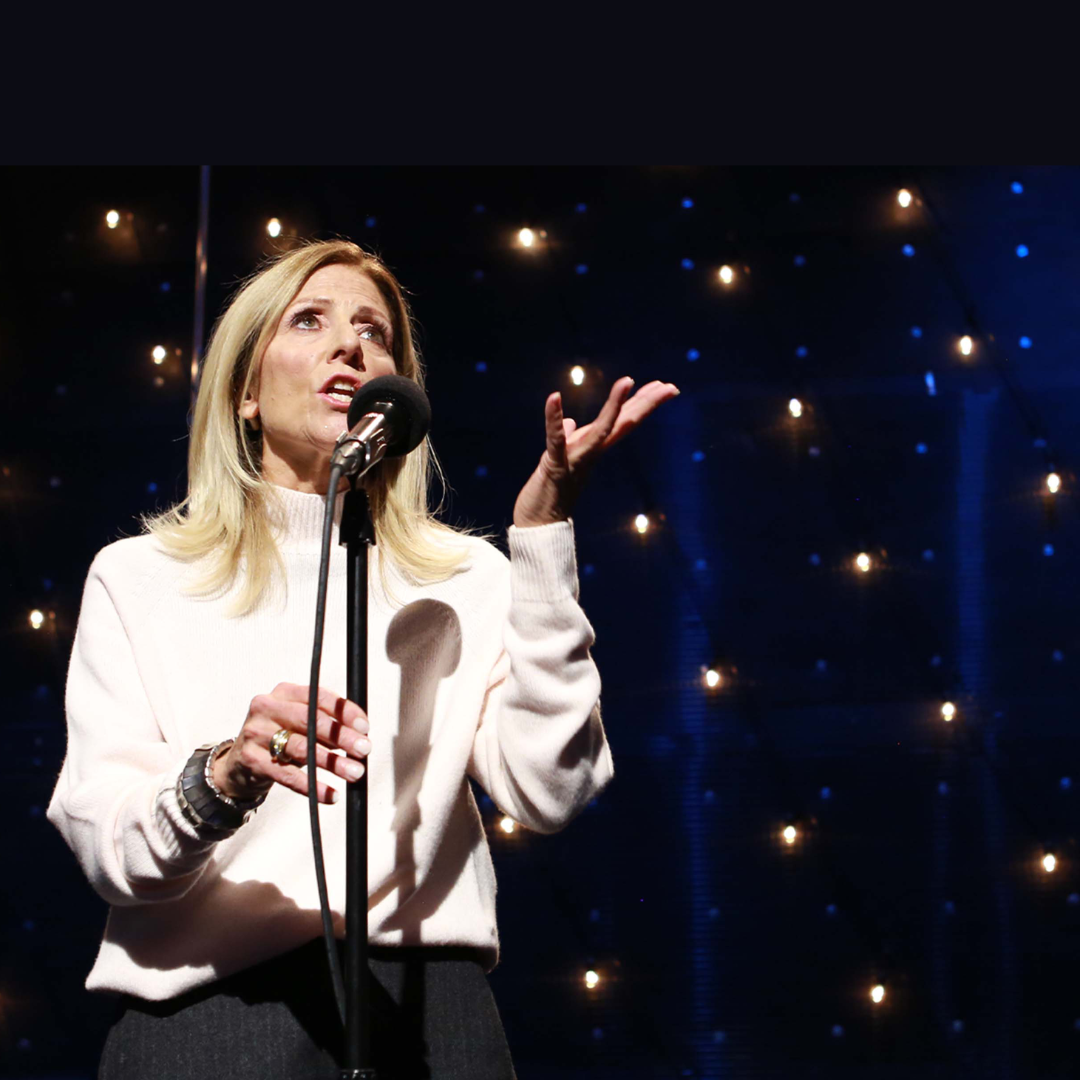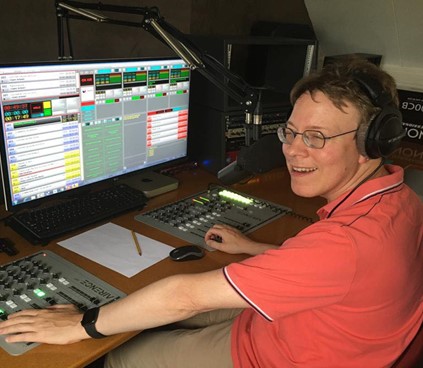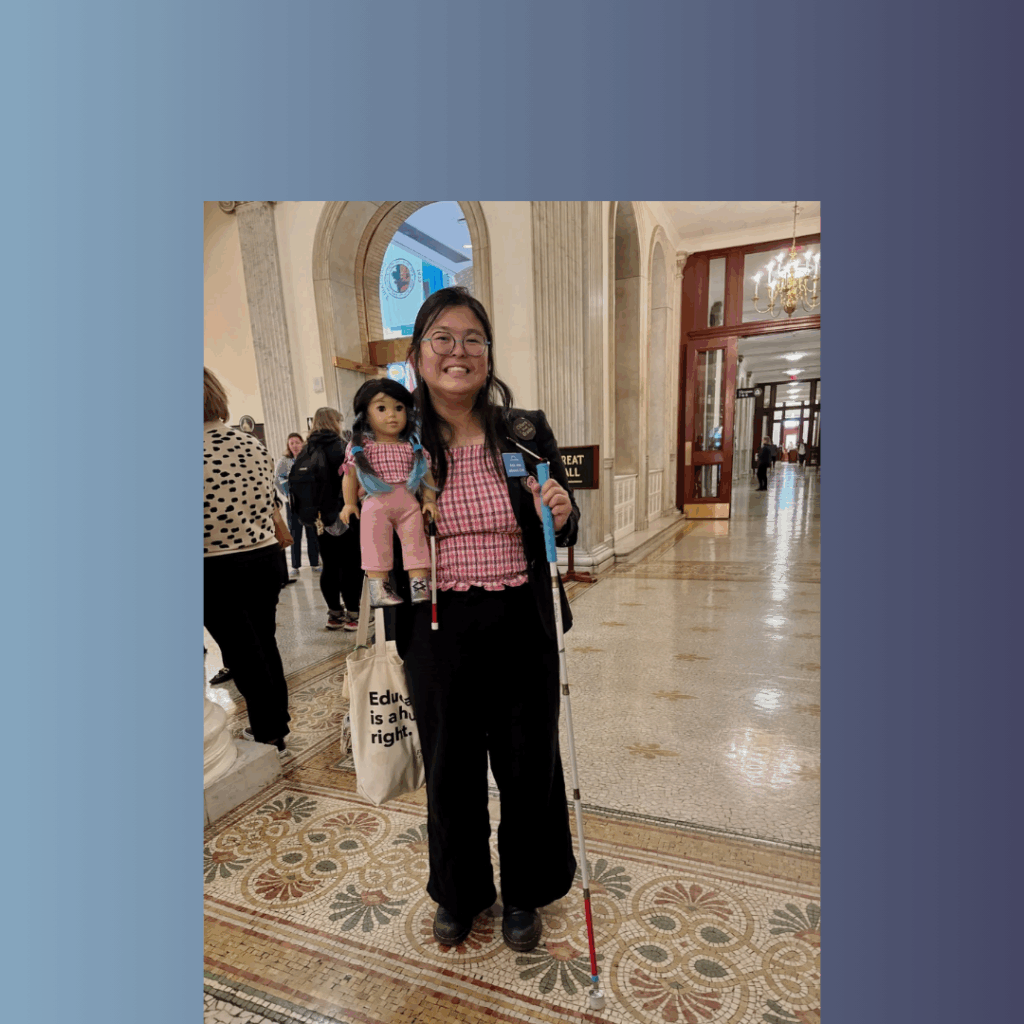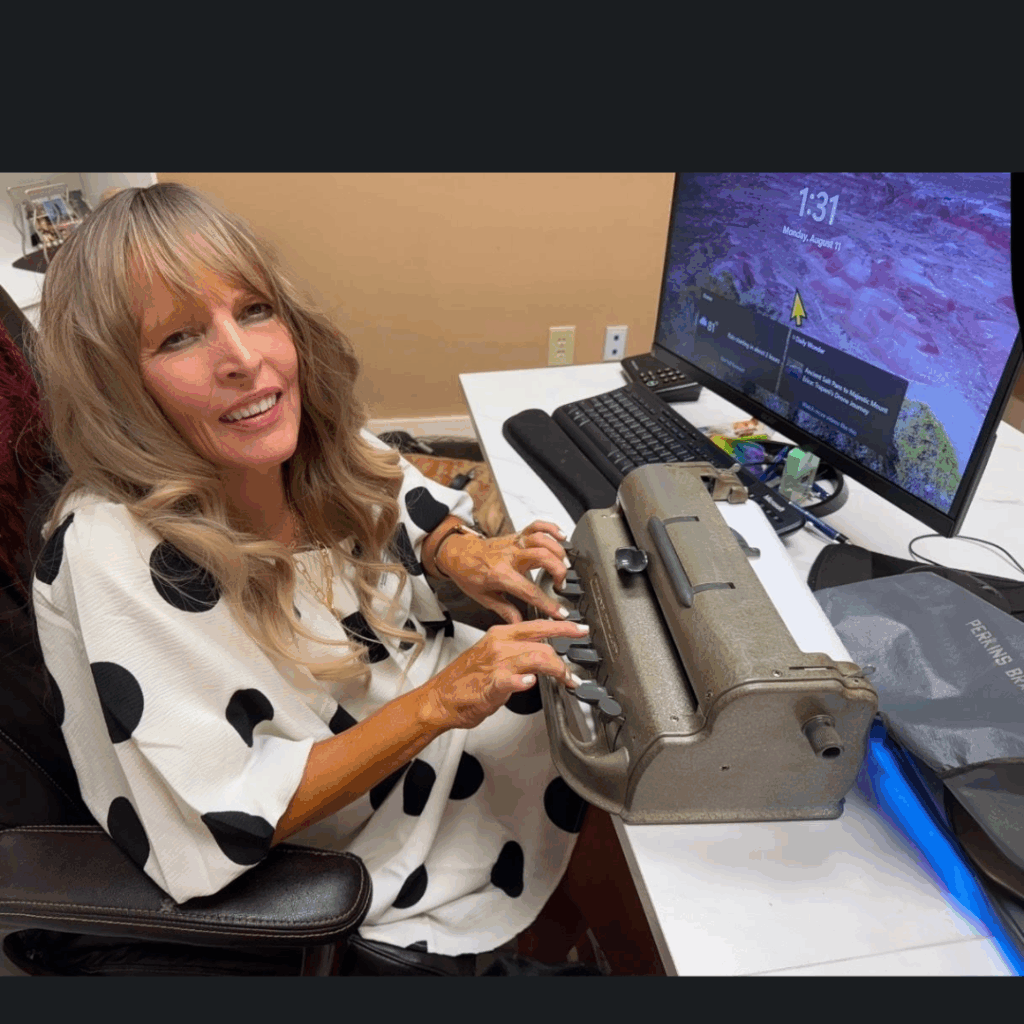I’m Nina Livingstone, a deafblind writer and public speaker. I also compose music.
At the cusp of my 13th birthday, I was told I would eventually lose my sight and hearing due to the newly diagnosed Usher syndrome. I had already been wearing hearing aids since I was 7. Yet the reality of losing both completely didn’t hit me – I continued to pursue my love of the arts and sports, though my athletic prowess diminished along with the daylight and night blindness marked the early signs of Usher.
Despite the further deterioration of my sight and hearing, I graduated Boston College and did post-graduate work at Radcliffe and Harvard. I remained drawn to the arts, composing music and photography, later becoming a videographer.
Before the completion of my first documentary film, I was rendered deaf and blind. The year was 2000. The following year, I received a cochlear implant in one ear.
Revisiting a love of writing
It was then that I returned to writing – I had always loved hearing other people’s stories – and began my career as a journalist. Known for my tenacity, a quality revered in freelance circles, I learned to strategize my way around obstacles.
Interviewing a group of people? Challenge met when I was joined by the cast of the Netflix series “Kim’s Convenience” for this story.
With COVID came Zoom and I quickly adapted to the then-new technology when I was assigned to interview David Hyde Pierce and Bebe Neuwirth from the HBO series “Julia.”
After learning author and “Pretend It’s a City” star Fran Lebowitz refuses most interview requests, in addition to eschewing cell phones and computers, I was faced with a double challenge and loved it. Not only did I finally convince Lebowitz to grant me an interview, but when she shared her landline number — and her permission — I figured out how to record the interview as taking notes in braille would have been impossible given the New Yorker’s rapid-fire speech.
Incorporating the deafblind experience into my work
I was rarely called upon to write as a blind, hearing-impaired journalist, but did so when Harvard asked me to review a “tactile” art exhibit and interview its sighted creator, Wendy Jacob. Harvard later invited me as a guest speaker at its annual Diversity Conference.
By then, speaking before a live audience wasn’t new to me as I had begun to bring my own stories to the stage. NPR’s Moth StorySlams led to Moth Mainstage performances, most recently in Portsmouth, N.H. A “Stories on the Green” in Lexington, Mass., brought me to WGBH’s “Stories From the Stage,” which aired on PBS this past spring. I also completed my memoir, “Are You There?”
From my breadth of experiences, I have learned that there are few obstacles I can’t overcome and no challenge that I would willingly walk away from.
About the author
Nina Livingstone is writer and public speaker (who also composes music) based in Massachusetts. She has a degree in English literature from Boston College, and received the Dean’s Award for Character and Loyalty. She is currently seeking a literary agent for her memoir “Are You There?”
Through three videos a week, Nina promotes her humor and her work on Tiktok, Instagram and YouTube. She is always on the lookout for audition opportunities and doesn’t think her deafblindness should exempt her from car commercials, movies, and streaming series.
You can learn more about her on her website, DestinationMirth.com or contact her via email at Nina@NinaLivingstone.com.



